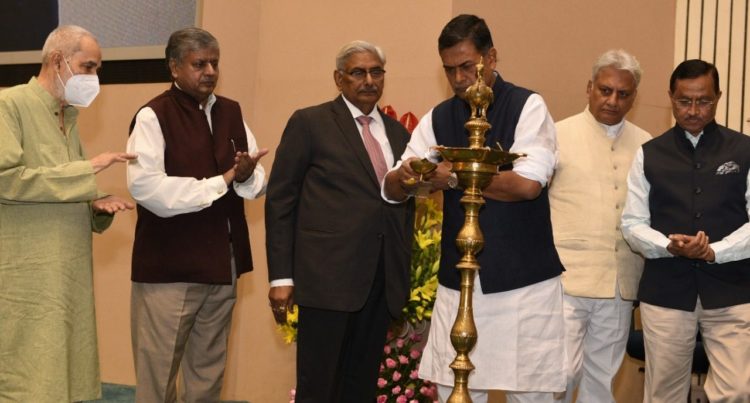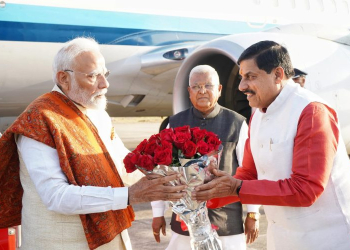New Delhi: Union Minister for Power, New and Renewable Energy R.K. Singh on Thursday said that respecting human rights has been inherent in the Indian way of life since time immemorial, and much before these were defined by the West.
Singh said this while addressing the inaugural session of the two-day ‘National Conference on Human Rights in Indian Culture and Philosophy’, organised jointly by the National Human Rights Commission and Indira Gandhi National Centre for Arts, on Thursday.
Singh said that Indians are different because they have always come across as evolved human beings having respect for human rights in their genes.
“Nevertheless, in order to protect the rights of the people, sometimes tough laws are also needed like Unlawful Activities Protection Act to deal those who indulge in heinous crimes against fellow human beings,” he said.
He said that “it is our country that has expanded the concept of human rights by ensuring houses, piped water connection, electricity, gas connection for all; health insurance cover of Rs 5 lakh to every family below the poverty line and right to food that ensured 80 crore people got free food, that is the concept of our human rights and let no one preach us”.
He said that respecting rights of women has been a very old tradition of Indian society much before the West realised these.
“We come from a culture where a common man can question the king. Indian history and culture is very vast, and there is a need to study it more with Indian perspective,” he said.
Earlier, addressing the gathering, Justice Arun Mishra, NHRC Chairperson said that India has given a new philosophy to the world.
He said that Dharma has been recognised as a way of life in India and not as a narrow understanding of religion. Therefore, the conduct, as a set principle of life, has become a strong pillar for respecting human rights, he added.
Referring to several scriptures of different religious faiths, he said that in Indian culture, there has never been a monopoly of any religious faith or ideology, because there has been acceptance for all beliefs, and that is why the concept of religious conversion never met the approval, as its need was never felt.
“Indian culture and philosophy are not an intellectual process; humanity is embedded in them like heart beating,” said Ram Bahadur Rai, IGNCA Board of Trustee.
(IANS)




















